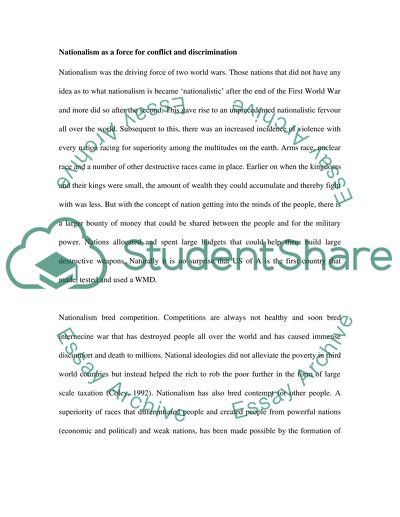Cite this document
(“Has Nationalism Been a Force for Order and Cohesion than for Conflict Essay”, n.d.)
Has Nationalism Been a Force for Order and Cohesion than for Conflict Essay. Retrieved from https://studentshare.org/politics/1530084-nationalism-essay
Has Nationalism Been a Force for Order and Cohesion than for Conflict Essay. Retrieved from https://studentshare.org/politics/1530084-nationalism-essay
(Has Nationalism Been a Force for Order and Cohesion Than for Conflict Essay)
Has Nationalism Been a Force for Order and Cohesion Than for Conflict Essay. https://studentshare.org/politics/1530084-nationalism-essay.
Has Nationalism Been a Force for Order and Cohesion Than for Conflict Essay. https://studentshare.org/politics/1530084-nationalism-essay.
“Has Nationalism Been a Force for Order and Cohesion Than for Conflict Essay”, n.d. https://studentshare.org/politics/1530084-nationalism-essay.


